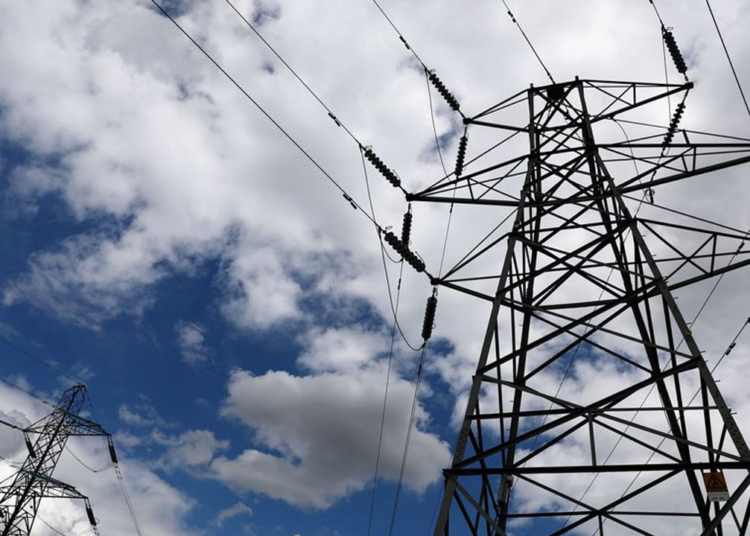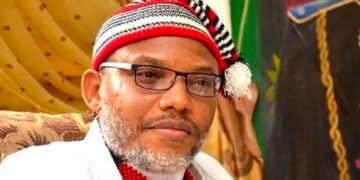Nearly 12 years after the privatisation of Nigeria’s power sector in 2013, the promise of improved electricity supply and sector efficiency remains largely unfulfilled, despite the federal government’s massive financial interventions totalling over N15 trillion.
This is as key stakeholders and power sector experts have picked holes in the flawed privatisation process of the country’s electricity sector, with some demanding a review of the exercise to promote transparency and efficiency.
Their reactions followed the admission by a former Minister of National Planning, Dr Shamsuddeen Usman, that the power assets sale exercise was characterised by a lack of transparency.
Dr Usman, a former Minister of National Planning under President Goodluck Jonathan, revealed serious irregularities surrounding the 2013 privatisation of Nigeria’s power generation and distribution companies.
Speaking at the Nigerian Society of Engineers’ lecture in Abuja, Usman admitted that government officials and politicians jostled for shares in the power companies, compromising the integrity of the process.
Dr Usman lamented that politicians and government officials, who should have remained neutral, instead exploited their positions to secure shares in the privatised power assets for personal benefit.
He said, “We sold DisCos and GenCos to ourselves,” with “big masquerades” involved in ownership, undermining the sector’s reform goals.
LEADERSHIP reports that the privatisation of the sector, during which 11 distribution companies (DisCos) and six generation companies (GenCos) were sold to private investors, has been marred by ownership tussles, financial distress, and persistent power shortages that continue to plague millions of Nigerians.
Reflecting on the process, Usman stated, “I was part of the power privatisation and I am not going to extricate myself. It is a collective responsibility and I am not comfortable with the speed at which we rushed that exercise.”
He admitted that unlike in earlier privatisation efforts, which were governed by strict codes of conduct, the electricity sector privatisation was compromised.
“At that time, we had the Code of Conduct that ensured that no member of the management or the board actually could buy any of the assets that we were selling. The electricity privatisation unfortunately was not handled that way,” he said.
Usman, who served as the first Director-General of the Technical Committee on Privatisation and Commercialisation (TCPC), disclosed that political considerations overshadowed economic and technical qualifications in selecting buyers.
“If you look at all these DisCos and GenCos, unfortunately, some of us saw it at that time, but there wasn’t much we could do because of the rush and political thing it had become. There is in each and every one of them at least one or two ‘big masquerades’,” he said.
He further criticised the misconception that electricity privatisation would emulate the telecoms sector’s success, emphasising that many investors lacked the necessary expertise.
“You don’t sell because of some people who are in the government. You sell because they have demonstrated expertise, and a lot of people rushed into it because they thought electricity is like telecoms without even understanding the industry. Nigeria lacks implementation, not planning.”
He linked many of the current difficulties in the power sector directly to the flawed privatisation process and the political interference that undermined its integrity.
The 2013 Power Sector Privatisation
In 2013, the Nigerian government privatised the power sector by selling 11 DisCos and 6 GenCos to various investors, including prominent businessmen like Tony Elumelu, Femi Otedola, and Tonye Cole, as well as some other political figures.
The government, however, retained ownership of the Transmission Company of Nigeria (TCN).
The total proceeds from the sales were about $2.238 billion, making it one of Africa’s largest privatisation exercises.
The DisCos were sold to consortia such as Interstate Electrics Limited (Enugu DisCo), Vigeo Consortium (Benin DisCo), and NEDC/KEPCO (Ikeja DisCo), while GenCos went to groups like Transcorp/Woodrock Consortium (Ughelli Power) and Amperion Power Company Limited (Geregu Power).
LEADERSHIP checks also showed that despite privatisation, the government has continued to inject substantial funds into the power sector to keep it afloat.
Between 2015 and 2019, the Central Bank of Nigeria provided three bailouts, totalling about N1.5 trillion, to cover revenue shortfalls.
In 2017, the Federal Executive Council approved N701 billion as a Power Assurance Guarantee to pay GenCos.
In 2019, another N600 billion was injected to cover payment shortfalls.
By May 2022, total intervention funding to DisCos rose to about N2.9 trillion.
From 2013 to 2023, the federal government spent approximately N7 trillion on direct interventions and subsidies.
The 2024 budget proposed N450 billion for power interventions, but subsidy payments alone were projected at N1.67 trillion, far exceeding budgeted funds.
These figures underscore the sector’s ongoing liquidity crisis and the government’s struggle to sustain it financially.
Yet these huge interventions have failed to yield the desired result of providing stable electricity supply to the country, as the World Bank’s Nigeria Electricity Supply Industry (NESI) Progress Report and Outlook stated that over 80 million Nigerians do not have access to electricity.
Data from the Nigeria Electricity Regulatory Commission (NERC) indicates that installed generation capacity rose slightly from 12,000 megawatts (MW) to 13,625 MW, but available capacity is much lower—about 5,339 MW—indicating 39.2 per cent availability by January 2025.
Nigeria has an installed generation capacity of 13,600 MW but actual generation and distribution peak around 5,000 to 6,000 MW due to infrastructure and operational inefficiencies.
The grid experienced frequent collapses; from 2010 to June 2022, there were at least 222 partial or total collapses, with seven in just the first nine months of 2022. Causes include demand-supply mismatch, weak infrastructure, and vandalism.
The Transmission Company of Nigeria (TCN) has transmitted and distributed peaks up to 5,801.63 MW, reflecting the highest energy evacuation to distribution networks.
Distribution capacity has been constrained by the sector’s multifaceted problems: lack of investment, inadequate technical capacity among DisCos, and insufficient government investment in transmission infrastructure.
Since the privatisation exercise, LEADERSHIP checks showed that no fewer than six DisCos (including Abuja, Kano, Kaduna, Benin, Ibadan, and Port Harcourt) have been taken over by banks and the Asset Management Corporation of Nigeria (AMCON) due to loan defaults and poor financial performance.
These companies are now under receivership, with ongoing legal battles between the original owners and financial institutions. Additionally, Jos and Yola DisCos were re-concessioned in 2022 and 2021 respectively, indicating further operational changes.
In 2024, the federal government transferred its 40 per cent ownership stake in all 11 DisCos from the Bureau of Public Enterprises (BPE) to the Ministry of Finance Incorporated (MOFI), signalling a shift in government management but not outright ownership change.
Unlike DisCos, GenCos have largely maintained stable ownership since privatisation, with no significant publicised takeovers or restructurings.
Experts and stakeholders widely agree that the privatisation process was flawed and rushed, with poor transparency and political interference.
Industry Experts Weigh In
Muda Yusuf, CEO, Centre for the Promotion of Private Enterprise (CPPE), agrees that the power sector privatisation process was flawed.
He described the recent comments by Dr Shamsuddeen Usman, former DG of the Technical Committee on Privatisation, as quite instructive.
According to him, the problem of the privatisation process is the paucity of investment in the sector, adding that the private sector owners of the DisCos evidently had no financial capacity to fix the distribution infrastructure from inception.
Yusuf, a former Director-General of the Lagos Chamber of Commerce and Industry (LCCI), also pointed out that most distribution companies lack technical capacity.
He also blamed the government for not adequately investing in the transmission infrastructure; thus, the sector has a multitude of investment issues crippling service delivery.
Chukwuebuka Ibeh, a Nigerian energy lawyer, corroborated Yusuf’s assertions.





